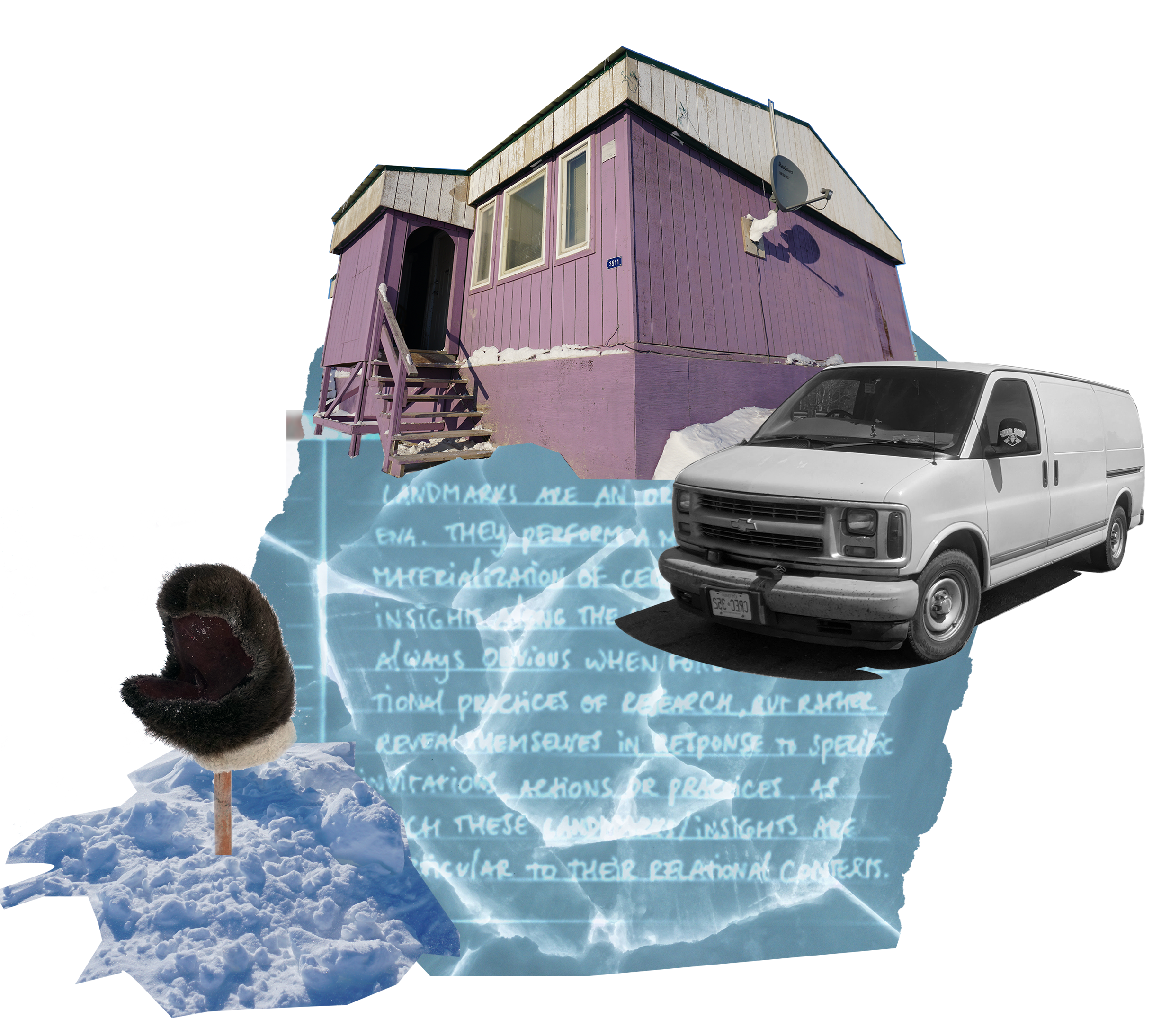Song, Dance and Oral Storytelling

Over the course of going out on the land to film, audio-record, edit, translate, add credits. I was told multiple times that words, and songs can "paint a picture of the land". This seemed particularly true around the recording of the "Pihhiq," a song that describes the life, travels and hunts of a great Gjoa Haven hunter and ancestor.
The use of language in such songs are not just descritive however, As Tuppittia Qitsualik, who started interpretting for the Bearwatch project later in the project explained to me. Language emerges from the land, and in turn keeps knowledge of the land alive.
That, that knowledge, Siksik’s knowledge, Qirqut’s knowledge, the words that they used as hunter men, their language is going to be gone once they go, cause, and they don't use it. There has to be some forum for... That they can go on an actual polar bear hunt or something so that they could use those words. Specific words. Yeah, like those terms and attitudes and principles, you know. Yeah, yeah, yeah. Yeah, and the knowledge just by, especially when they said that you could tell by the DNA how old it is, whether it's female or what it ate. My father could tell by the footprint itself, like how long ago, how many hours ago, just about.
(…) It makes no sense to sit on the chair and just recite those words."This is the easy link to the Invitation: Checking Seal Dens
